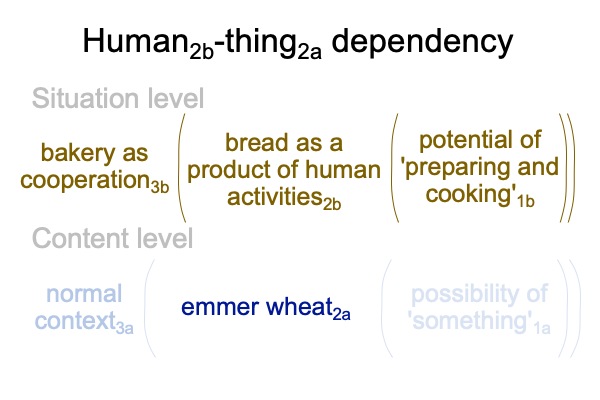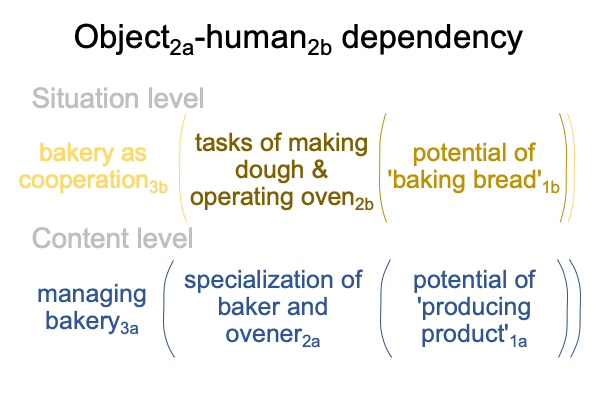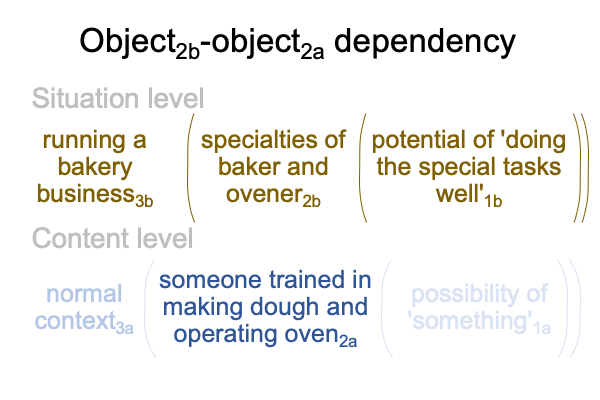0074 A terminological shift is appropriate when considering human-human dependency in our current Lebenswelt. Instead of a “thing”, the person becomes an “object”.
Of course, in the Lebenswelt that we evolved in, one can never objectify a person within one’s own social circles. What does one image or point to? Hand-speech talk does not allow objectification, that is, explicit abstraction.
0075 Can I wrap my head around this idea?
In the Lebenswelt that we evolved in, linguistic hand-speech talk always referred to things and states of things that could be imaged or pointed to with manual-brachial word gestures. In our current Lebenswelt, almost every spoken word that I know involves an explicit abstraction, where meaning, presence and message are projected into a formant-frequency placeholder (a parole) in a system of differences. How mind boggling.
0076 When we project meaning, presence and message into a spoken word, the intended referent becomes an “object”. A “baker” is someone who makes the dough to make bread. A “ovener” is someone who makes sure that the fire heating an oven is constantly and correctly maintained.
Well, that is the nomenclature that I am going to use.
0077 Now, I can return to the diagrams of H2b-T2a, T2a-H2b and T2b-T2a presented earlier (points 0036-0041).
Emmer wheat is used to make bread. This is an example of human-thing dependency, H2b-T2a, in our current Lebenswelt.

0078 Bread is a product of organized human activities. Because spoken words may be used to label specialized features of the organization2b, explicit abstraction allows various tasks to become specialties, such as baker and ovener2a. This follows the pattern of thing-human dependency, T2a-H2b.
Here is a picture.

0079 The specialties of “baker” and “ovener”, once defined, promulgate feelings of implicit abstraction. These people-things become artifacts that validate our projections of meaning, presence and message into the spoken words. These specialties2a are part of the toolset for producing product1a in the normal context of managing a bakery3a.
Humans are now tools. The question arises, “What makes a good ‘baker’ or ‘ovener’?”
Of course, these human-tools require training2a.
0080 Plus, these specialists2b better do their jobs well1b in the normal context of running a bakery business3b. This criteria fits the style of thing-thing dependence. However, now the things are objectified humans.

